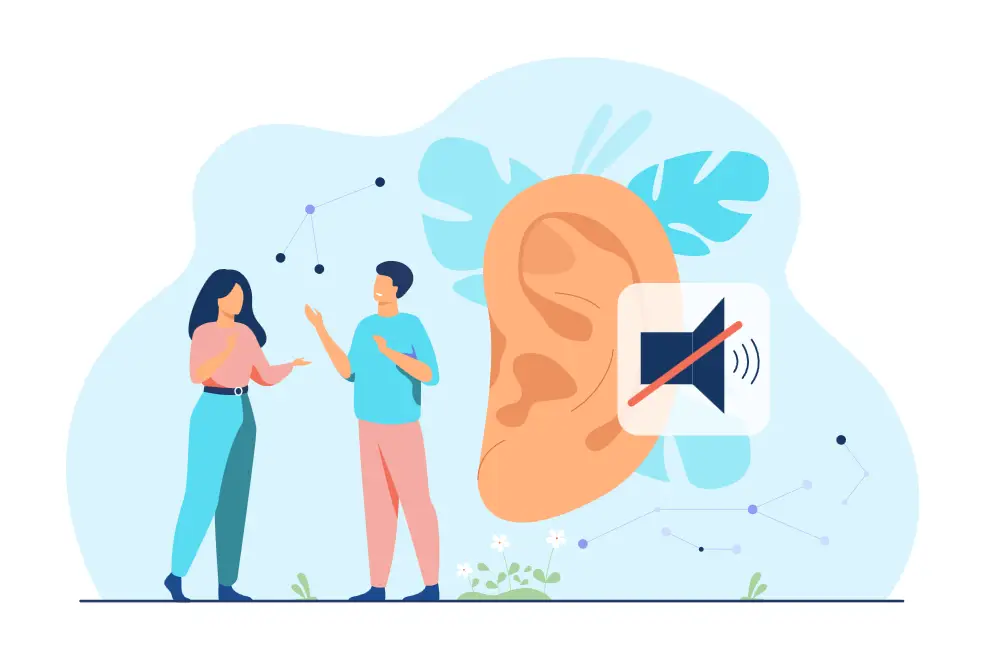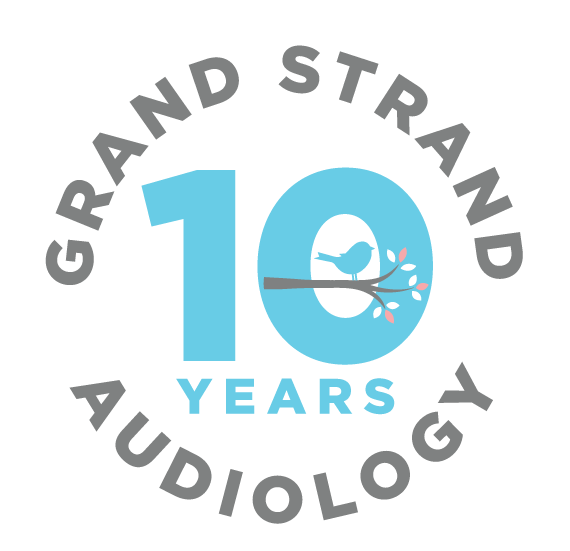Tinnitus Management
Tinnitus is a condition that impacts millions of individuals worldwide, creating a constant perception of sound in the ears without an external source. People with tinnitus often describe hearing ringing, buzzing, hissing, or other phantom sounds that can vary in intensity and frequency. This condition can disrupt daily activities, making it difficult to concentrate, relax, or even sleep. For many, tinnitus can lead to heightened stress and emotional frustration, affecting well-being.
At Grand Strand Audiology, we understand the profound challenges tinnitus can bring to everyday life. Our clinic is a trusted provider of tinnitus management solutions, offering personalized care tailored to each patient’s needs. With a focus on compassion and expertise, we are committed to helping our patients regain control and improve their quality of life.

What Is Tinnitus?
Tinnitus is the perception of sound in the ears or head without an actual external noise source. Commonly, it presents as ringing, buzzing, humming, or clicking sounds that can range from subtle background noise to an intrusive, loud sensation.
These symptoms often stem from various causes, such as prolonged exposure to loud environments, age-related hearing loss, ear infections, or certain medical conditions like high blood pressure.
Some individuals develop tinnitus as a side effect of medications, while others may experience it due to stress or jaw misalignment.
Understanding the causes of tinnitus is important for determining the best management strategy. At Grand Strand Audiology, we offer comprehensive evaluations to identify potential underlying factors contributing to tinnitus. By leveraging our expertise, we help patients manage symptoms effectively, guiding them toward relief and a better understanding of their condition.
How Tinnitus Affects Daily Life
Living with tinnitus can be a significant challenge. The persistent sounds associated with the condition can interfere with concentration, making tasks like reading, writing, or focusing on work seem nearly impossible. For students and professionals alike, tinnitus can disrupt productivity and performance. Also, the constant noise can make relaxing activities, such as listening to music or watching television, less enjoyable.
Sleep disturbances are another common consequence, as tinnitus often becomes more noticeable in quiet settings, leading to difficulty falling or staying asleep. Over time, the lack of quality sleep can exacerbate fatigue, stress, and irritability. Social interactions may also suffer, as individuals with tinnitus might withdraw from noisy environments or feel misunderstood by others who cannot relate to their experience. Recognizing these challenges is the first step toward seeking effective management solutions.
Our Tinnitus Management Approach
At our hearing practice, we utilize neuroplasticity-based sound therapy to manage tinnitus and improve patients' quality of life. This innovative approach leverages the brain’s ability to adapt and retrain itself, helping patients find relief from their symptoms.
Our sound therapy focuses on retraining the brain to perceive tinnitus sounds as less intrusive. By exposing the auditory system to carefully selected sounds, we aim to redirect the brain’s attention away from tinnitus. Subsequently, this process helps patients become less aware of the phantom noises, reducing their emotional response to the condition.
Our team works closely with each patient to design personalized sound therapy programs that address their unique needs and preferences. The goal is to promote a sense of control and empower patients to manage their tinnitus more effectively.
Who Can Benefit from Tinnitus Management?

Tinnitus management services can benefit a wide range of individuals. Patients who experience persistent ringing, buzzing, or other phantom sounds in their ears are prime candidates for intervention. Those with noise-induced hearing loss, often resulting from exposure to loud environments such as concerts, industrial workplaces, or firearm use, can also find relief through our services.
Also, people with age-related hearing loss or underlying conditions like high blood pressure, diabetes, or temporomandibular joint (TMJ) disorders may benefit significantly from tinnitus care. Patients who struggle with sleep disturbances, difficulty concentrating, or emotional distress due to tinnitus are encouraged to explore our management solutions. We provide compassionate care tailored to each patient’s unique circumstances to ensure everyone has access to the tools they need to manage tinnitus effectively.
Why Choose Us for Tinnitus Care?
Grand Strand Audiology is dedicated to providing patient-centered, evidence-based tinnitus care. Our approach combines advanced therapies with a deep understanding of the condition, allowing us to deliver personalized solutions that address each patient’s unique challenges. With years of experience in audiology, our team brings unparalleled expertise to every step of the care journey, ensuring patients feel supported and empowered.
We prioritize a compassionate, family-friendly environment where patients of all ages can feel comfortable discussing their concerns. We stay at the forefront of tinnitus research and sound therapy techniques to offer innovative care designed to achieve meaningful results. Choosing Grand Strand Audiology means partnering with a team committed to improving your quality of life and helping you navigate tinnitus with confidence.

Tips for Managing Tinnitus at Home
While professional care is important, there are several strategies patients can use at home to manage tinnitus. White noise machines or mobile apps that generate soothing background sounds can help mask tinnitus, especially in quiet environments. Using a fan, humidifier, or soft music in the background can also create a calming auditory atmosphere. Stress reduction techniques, such as mindfulness meditation, yoga, or deep breathing exercises, can be beneficial in minimizing tinnitus’s emotional impact.
Maintaining a healthy lifestyle by staying active, eating a balanced diet, and getting adequate sleep can further enhance resilience against tinnitus-related stress. Avoiding excessive caffeine, nicotine, or alcohol consumption is also recommended, as these substances can sometimes exacerbate symptoms. By combining these home management strategies with professional care at Grand Strand Audiology, patients can take a comprehensive approach to managing tinnitus and improving their well-being.
